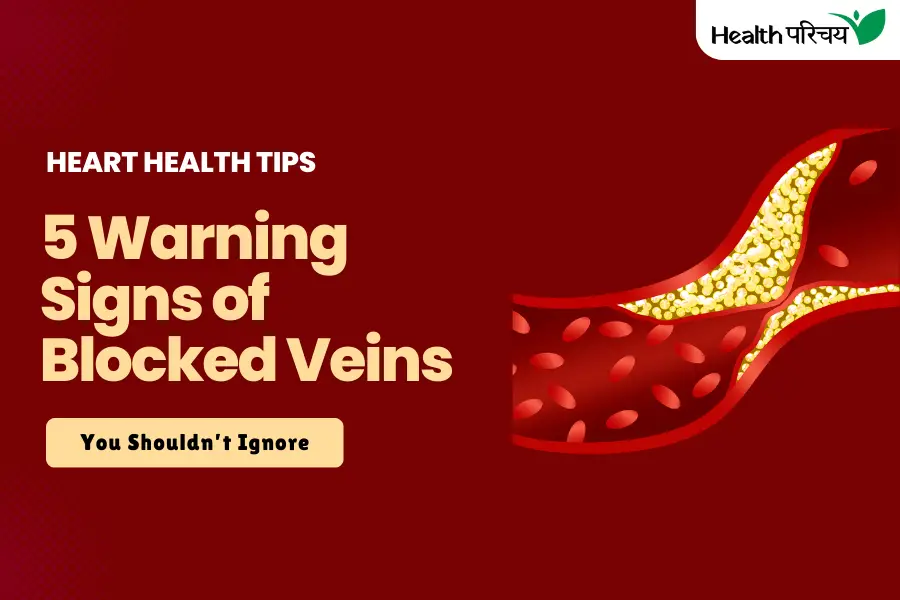Warning Signs of Blocked Veins: Blocked veins can disrupt blood flow and lead to severe health complications like heart attacks or strokes. Identifying the symptoms early can make all the difference in preventing life-threatening conditions. Here are the five key warning signs of blocked veins you should be aware of:
1. Chest Pain or Discomfort
Chest pain is one of the most common signs of blocked veins. This occurs when the heart doesn’t receive enough oxygen-rich blood due to restricted blood flow. The pain can range from mild to severe and is often felt in the center of the chest as a heaviness or tightness.
- What to do: If you experience unexplained chest pain, consult a doctor immediately, as it could signal a serious condition like a heart attack.
2. Shortness of Breath
Difficulty breathing, especially during physical activities, may indicate blocked veins. When blood circulation is restricted, the body doesn’t get enough oxygen, making breathing laborious.
- What to do: If even mild exertion leaves you gasping for air, seek medical advice without delay.
3. Persistent Fatigue and Weakness
Feeling unusually tired or weak, even after minimal effort, could be a sign of vein blockage. This happens because the heart has to work harder to pump blood, leaving you drained of energy.
- What to do: Don’t ignore frequent fatigue or unexplained weakness. Schedule a check-up to determine the underlying cause.
4. Dizziness or Fainting
Blocked veins can lead to insufficient blood and oxygen supply to the brain, causing dizziness or fainting spells. This symptom often accompanies other warning signs like chest pain or shortness of breath.
- What to do: Frequent dizziness or fainting is a red flag that needs immediate medical attention.
5. Cold Hands and Feet
If your hands and feet often feel cold, it could be due to poor blood circulation caused by blocked veins. Some people may also experience pain, swelling, or numbness in their extremities.
- What to do: Persistent coldness in your hands or feet should prompt a visit to your doctor for a detailed evaluation.

What Causes Vein Blockage?
Blocked veins can result from several factors, including:
- Unhealthy diet
- Lack of physical activity
- Obesity
- High cholesterol levels
- Smoking
These habits can lead to the buildup of plaque in the veins, narrowing the blood vessels and restricting blood flow.
When to See a Doctor
If you notice one or more of these symptoms, don’t wait. Blocked veins can escalate into severe health conditions if left untreated. Early diagnosis and intervention can help restore blood flow and prevent complications like heart attacks or strokes.
Also Read: Weight Loss Tips: You Can Lose Weight by Eating Wheat Pasta
How to Prevent Vein Blockages
- Adopt a heart-healthy diet rich in fruits, vegetables, and whole grains.
- Exercise regularly to improve blood circulation.
- Avoid smoking and limit alcohol consumption.
- Maintain a healthy weight to reduce pressure on your veins.
By paying attention to these warning signs and taking preventive measures, you can protect your veins and overall cardiovascular health.
Don’t wait for symptoms to worsen—take charge of your health today.







Leave a Reply